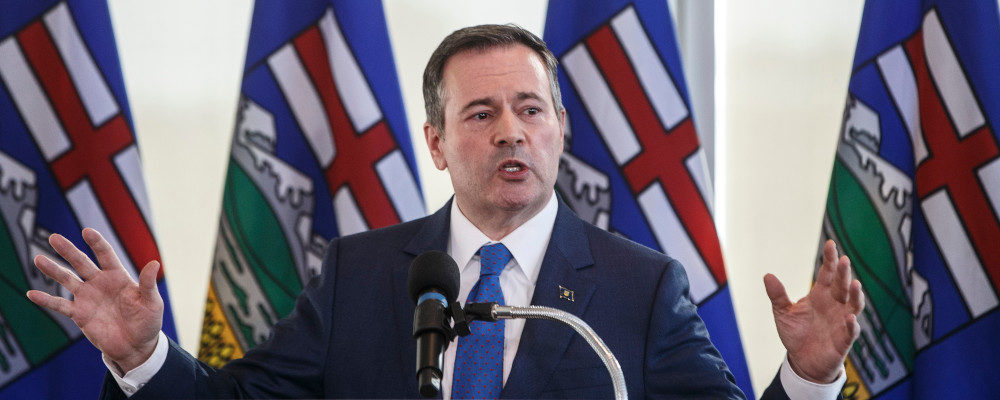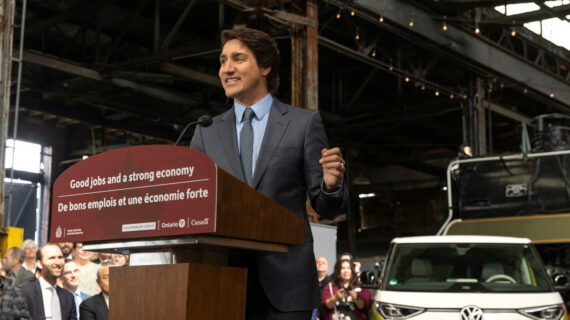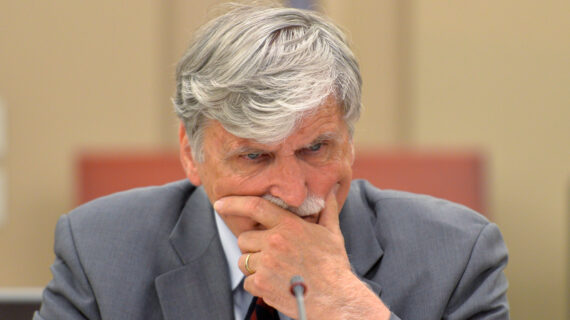As United Conservative members fill out their ballots and deliver their verdict on Jason Kenney next month, it’s worth recognizing that notwithstanding the party’s current intra-tensions, the Kenney government has enacted a number of bold and innovative policies over its first three years in office. Many of them can find their origins in ideas that conservative voices in the province have advanced for a long time.
Through much of the 2010s, Alberta’s Wildrose party was the beating heart (and fertile mind) of conservative ideas in the province. Bold policy ideas were synonymous with the party brand, so much so that the 2012 election slogan “New Ideas that Put Albertans First” was splashed across every press release and party advertisement.
Wildrose’s major policy pillars included a fiscal overhaul of government to restore balanced budgets and low taxes, an emphasis on using market-based mechanisms to lower wait times within a universal health care system, greater choice in Alberta’s education system, returning to core disciplines like math and literacy in the classroom, and bringing about transformational democratic reform.
These policy priorities were reflected in 2012 under Danielle Smith’s leadership, and the policy formula remained largely the same under Brian Jean in 2015. Yet it’s actually been the current Alberta government that has brought policy expression to these ideas.
On the budget, the United Conservative government faced significant criticism over reductions in overall spending across departments and holding the line on education spending entirely. There were tough battles fought with public sector unions to bring Alberta’s bloated spending closer to the average among major Canadian provinces. MLAs and the Cabinet also rolled back their own salaries as part of these efforts.
Today, Alberta faces the welcome policy challenge of how to best deploy fiscal surpluses and create a new savings strategy.1A debt-free Alberta by 2030? It’s possible Natural resource revenues helped, but this didn’t happen by accident. If Alberta stayed under the previous NDP government’s projected spending growth, this year’s deficit would have soared beyond $6 billion, an eye-watering number for borrowing in any normal year before COVID laid havoc on the province’s finances.
In the 2015 campaign, then Wildrose leader Brian Jean was relentlessly focused on a promise to not raise taxes and said he would reverse the increase of the provincial gas tax from 10 cents to 13 cents a litre. Just this month, Kenney scrapped the gas tax altogether.
Every iteration of Wildrose leadership pushed for the restoration of the Alberta Advantage in the province’s overall macroeconomic environment. Today, Alberta has the lowest taxes to run a business in Canada, and, after slashing more than 20 percent of red tape across government, now has the lowest red tape burden too.
On health care, both the 2012 and 2015 Wildrose campaigns pledged a patient wait time guarantee. That core idea evolved into the Alberta Surgical Wait Time Initiative, a program that has already helped ease surgical wait times even after two years of a pandemic that tested and stretched our health-care system capacity.
In education, Wildrose leaders and MLAs were major defenders of parental choice. The Kenney government has enshrined those rights into law. While the NDP government blocked the expansion of charter schools, the current Education Minister Adriana LaGrange has seen them expand.
Wildrose fought new fads in education like discovery math that saw declining outcomes for students. The Kenney government has similarly been laser-focused on restoring core competencies for students in math and literacy.2“But McMann found that after one year with the new curriculum, Fort Vermilion students had on average two full years of growth in math and three full years in literacy.” https://edmontonjournal.com/opinion/columnists/david-staples-hey-alberta-politicians-leave-those-kids-alone
In the battle for democratic reform, Wildrose time and time again fought to implement a recall law in private member legislation, an initiative that was shut down by previous legislatures. Today, Alberta now has a recall statute on the books.
In 2012, Wildrose introduced citizen-initiated referenda as a core part of its policy platform. In 2021, the UCP government passed it into law.
And there have been other Wildrose ideas that are now Alberta government policy too. Bill 6 was repealed. The Alberta Provincial Police force is back on the policy map after even previous Wildrose leaders abandoned it. Alberta has shown the strongest provincial opposition to the carbon tax, has sued the federal government on several rounds of legislation to defend provincial rights, and held a referendum to battle equalization—an initiative more than 60 percent of Albertans supported at the ballot box.3“When it comes to if the Alberta government should ask the federal government to remove Section 36(2) of the Constitution Act, 1982 — it was a resounding ‘yes.’ More than 640,000 Albertans — 61.7 per cent — voted in favour of the question. Just under 400,000 Albertans voted ‘no.'” https://globalnews.ca/news/8326174/kenney-equalization-daylight-saving-time-referendum-results/
The key point here is that for those conservative activists and intellectuals who advanced these issues under the Wildrose party’s banner, the Kenney government has actually seen many, if not most, of these policies through.
While he may be governing under a United Conservative banner, when it comes to public policy, Jason Kenney’s record shows he has been Alberta’s first Wildrose premier. He received a massive mandate to see these policies through with more than a million votes and brought these ideas into the mainstream—no easy task. Has Jason Kenney been perfect? No. He’s admitted as much himself.
Members of Alberta’s United Conservatives will ultimately have their final verdict on his leadership,4“A decision will be announced on May 18. Should Kenney not receive a majority, the party would need to host a contest to select a new leader.” https://edmonton.ctvnews.ca/ucp-leadership-review-of-alberta-premier-jason-kenney-officially-begins-1.5855573 but those who fought for these policy ideas can celebrate all that has been accomplished since 2019.




